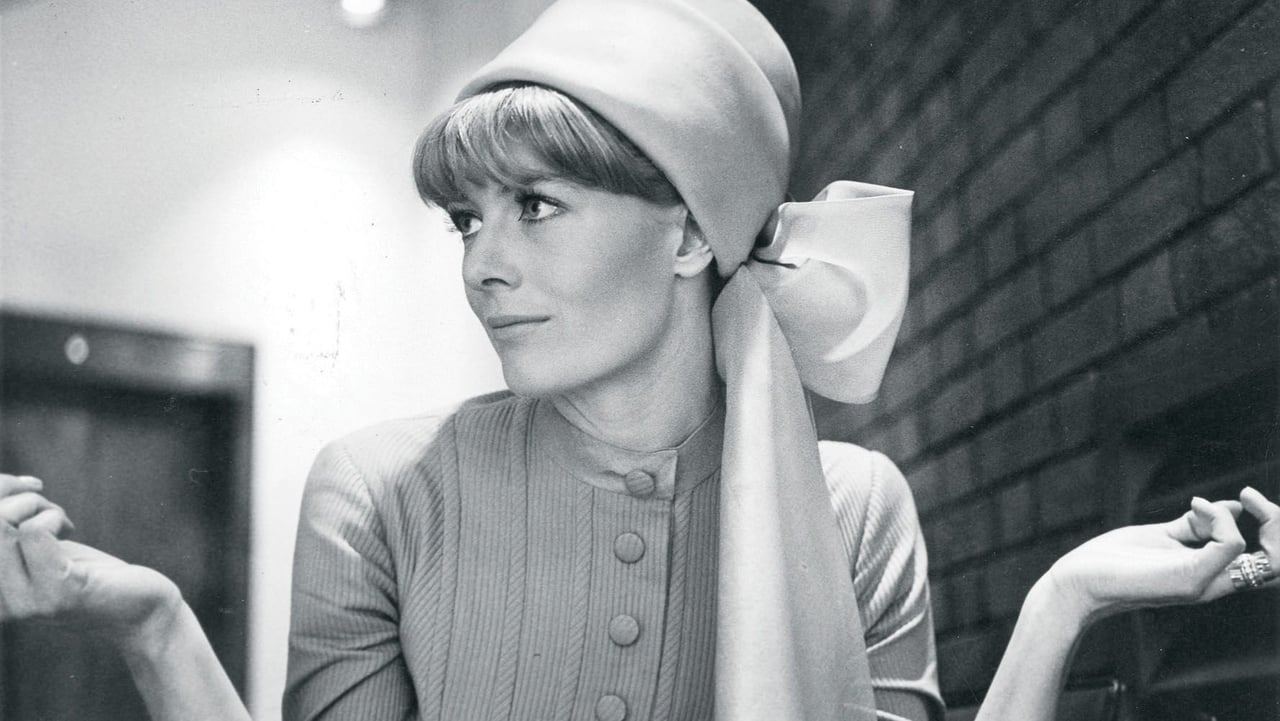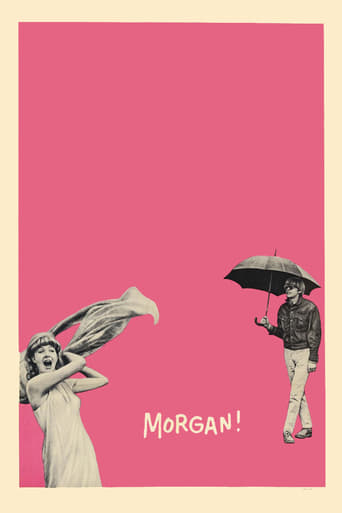

Karel Reisz directed "Saturday Night and Sunday Morning" which people went to see at the cinema in droves, and was enjoyed by many working class folk. Karel Reisz also directed "Morgan: A Suitable Case For Treatment" which far fewer people went to see at the cinema, and I feel was much less appealing to the working class viewer. I suspect that those who did see it and found it a hoot, where most likely to be middle class lefties and students. Because I am neither a middle class lefty or have ever been a student, I didn't find it a hoot at all. In fact I found David Warner's character Morgan, extremely irritating and annoying, him being a grown man acting like a badly behaved child. Although, in todays world grown men acting like badly behaved children are sadly accepted by society and are not deemed to require treatment. The Inbetweeners for example. I watched Morgan again recently, and it was nice to see Irene Handl and Arthur Mullard. I like the nostalgia of 1960's British films (even rubbish ones like this)and enjoyed seeing a youthful fresh faced Vanessa Redgrave. This lady was the reason I took out a short lived subscription of "The Workers Revolutionary Party" newspaper, way back in the early 1970's. I always intended to go to one of their meetings in the hope I might meet her, but never ever got around to attending one. Morgan was certainly not for me. If I have to watch so called slapstick comedy such as this (minus the political stuff) then give me a Norman Wisdom film anytime.
... View MoreBoy, did I love this movie in the Sixties when I was a left-wing radical college student. Everything about goofy Morgan (David Warner) was funny or likable or just plain cool, in a weird sort of way. This movie was so '60s with its mores and humor. If they had VHS tapes back then, I would have bought this in a heartbeat.When I began seriously collecting movies in the mid '90s, I was excited to see this again. Wow, what a disappointment. What was so great back then now looks so incredibly stupid. The film was so bad, and Warner was so annoying (hardly 'fab' anymore), I couldn't finish the film. I couldn't believe how incredibly inane this was and how much I used to like it. Like another '60s period piece, "Easy Rider," it's amazing how differently we see things depending on our age and/or how we have changed culturally, politically or religiously. I wonder if Warner looks back at this film and cringes, too.
... View MoreI've always had something of an ambivalent attitude towards the British "Swinging London" films of the 1960s: sometimes I enjoy their creative technique and anything-goes approach, while other times I find their brashness exasperating and extremely dated. Actually, MORGAN is now among the films I've revisited the most among them (more by accident than design) which has led me to toy with the idea of compiling a list of titles from that era - comprising above all films I've watched only once, or not at all, but also those which I haven't checked out in ages (some of which are in my endless "DVDs To Watch" pile).Anyway, the film itself is certainly one of the most engaging of the lot: basically an update of the typical Hollywood 'screwball comedy' formula, with one member of a divorced couple disrupting the new marriage plans of the other, though here we don't get the conventional happy ending. Reisz was, along with Lindsay Anderson and Tony Richardson, one of the founding members of the "Free Cinema" movement; though he started at the very top with Saturday NIGHT AND Sunday MORNING (1960), the rest of his career was rather spotty with MORGAN being perhaps its closest in quality - even if the unflinching realism of the former had, by this time, given way to irreverent comic fantasy!While the plot is somewhat thin and the lead character's pranks to reclaim his wife become repetitive, the film's hectic pace never wavers; stylish, amusing (particularly when dealing with Morgan's Communist background and his obsession with gorillas!) and bolstered by John Dankworth's playful score, it's delightfully enacted by the three principals - David Warner (the role of his life), Vanessa Redgrave (the recipient of many accolades, including a surprising Best Actress Oscar nomination) and Robert Stephens - none of whom are typically associated with slapstick (though David Mercer's script also offers perceptive comments about the painful consequences of a broken marriage).
... View MoreIn 1966 when I lived in London I fully expected to see this movie. Many of my friends, especially the girls, were raving about it. Funds diverted to beer, or girls, deprived me of the chance. So it has taken me nearly forty years to actually see it. Thoroughly of the time, and yet it must have seemed so radical even then. I watched it as a chaser to Alfie (Michael Caine) and it was interesting to compare the styles of two icons of British female acting, Redgrave and Asher, in one evening. Both movies dealt with serious and potentially unattractive issues; adultery, abortion, promiscuity and mental illness and injected enough humor into the screenplay to keep ones attention the while. I am prompted to revisit "Up the Junction" and " A Taste of Honey" with Rita Tushingham, another sixties icon.
... View More